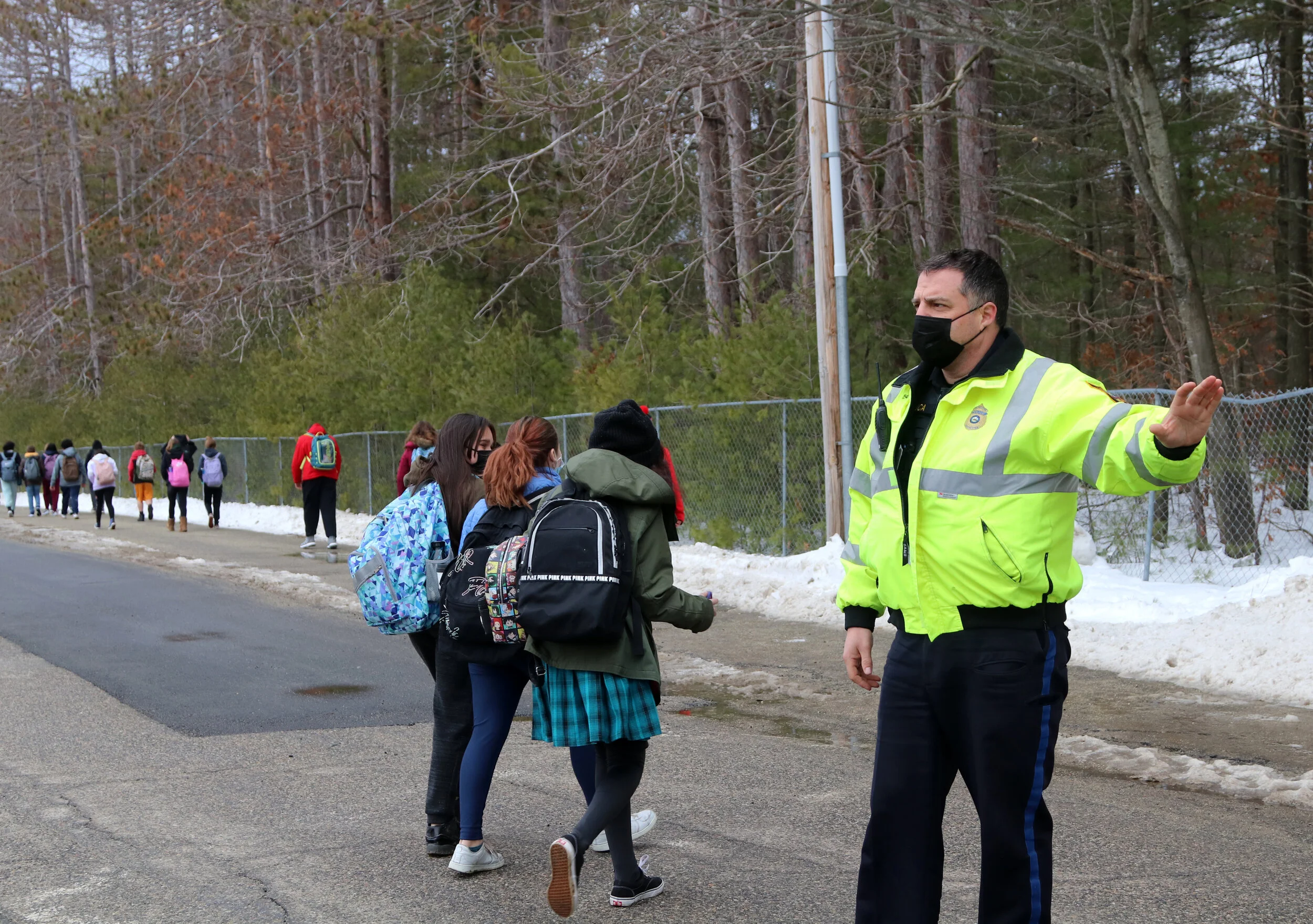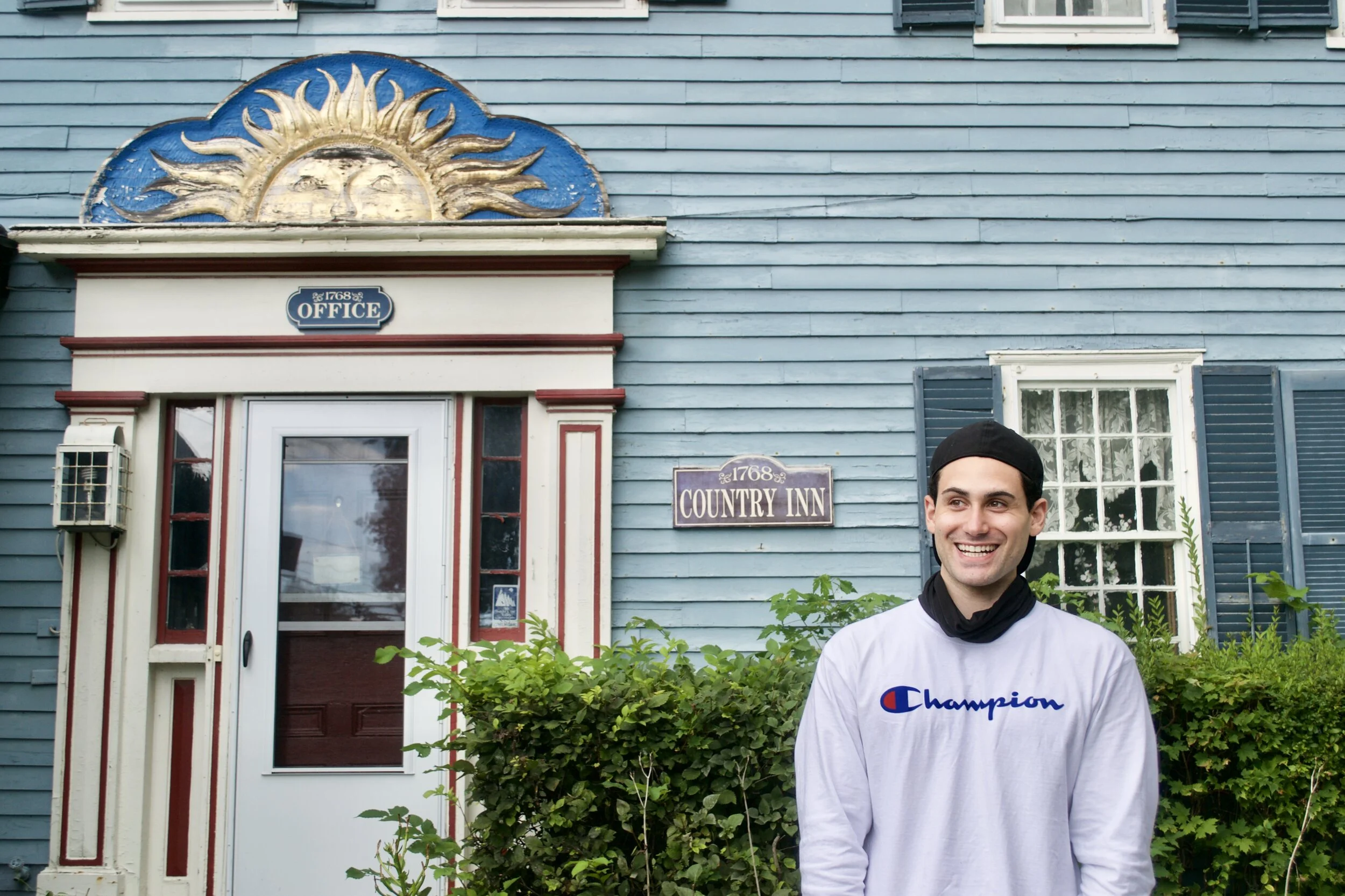Only a few months away from graduating from Spaulding High School, Dillon Guyer made a seemingly small decision that would change his life. He remembers his 17-year-old self as a typical rambunctious teenager who skipped a few classes a day to smoke weed with his friends behind the school. Something anyone at that age may have done.
School Resource Officers 'The Gatekeepers' of Juvenile Court Diversion
Nicole E. Rodler, chair of the New Hampshire Juvenile Court Diversion Network, calls school resource officers (SROs) “the gatekeepers” of the juvenile diversion system.
While their exact roles vary by school district and police department, SROs are generally tasked with keeping school campuses secure, protecting staff and students, mentoring students, and handling in-school juvenile offenses. They are the officers most likely to know the background and circumstances of young offenders because of their frequent contact with them in school (at least during non-pandemic times).
Part 2: “There is no Champion”
Joshua Deveer doesn’t try to fight his place in life anymore.
“I used to think doing something was everything, and now I’m starting to realize that, maybe not doing something is everything,” says the 23-year-old from outside of a modest North Conway inn, where he pays $600 per month to live. “Maybe restricting my footprint here, making sure that I watch my steps is what’s most important.”
In NH, data not the top priority
Court diversion advocates across the country say diversion saves money and reduces crime. But in New Hampshire, and nationally, the data to support this claim is hard to find.
Without more data collection and analysis, experts warn that it will be difficult to prove to funders and the public that diversion is as effective as advocates say.
Part 3: In Vermont, Restorative Justice Under Statute May Not Lead to Equitable Services
Being in the right state at the right time likely saved Ronald MacKinnon prison time when he made the decision to not seek immediate medical care for his wife.
…
MacKinnon’s case is an example of how a person’s split-second decision can permanently alter the trajectory of their future. Had MacKinnon been prosecuted in Cheshire County, where he’s from, he would almost undoubtedly have been given a traditional charge, such as misdemeanor reckless conduct, said County Attorney Chris MacLaughlin. A person convicted of misdemeanor reckless conduct in New Hampshire would face up to a year in county jail.
Our Turn: SROs and the impact of policing in schools
According to the New Hampshire Department of Safety, SROs are “school-based law enforcement officers” who endeavor to “build trust” with “the student body, reduce school safety issues, and promote perceptions of safety.” The National Association of School Resource Officers (NASRO) advocates for SROs to fulfill a “triad” role encompassing three primary functions: educator, informal counselor and law enforcer. But SROs are police officers whose predominant training is “paramilitary in nature.” They are not trained child counselors or educators.





